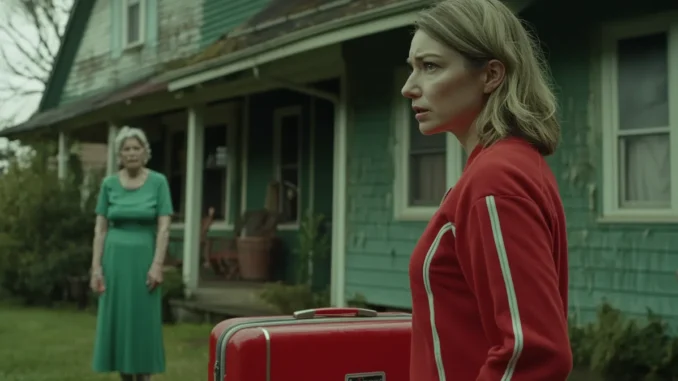
The rain hammered the rooftops as I pulled my coat tighter, hurrying to the notary’s office. My father was gone—my rock—but his debts had eroded everything we owned. Our home was heading for repossession; I was exhausted, defeated.
Inside the dusty office, the notary read the will—but I barely heard—until he paused and said, “a house.” Not the place I’d lost, but another property my father hadn’t mentioned. Shocked, I stared at the unfamiliar address. I needed to see it.
The next day, I drove through golden trees to a storybook-like house—fresh porch paint, mossy roof. But the key didn’t fit: the lock had been changed. Peering through the window, I was startled when a stern older woman opened the door.
“This is my house,” I stammered, brandishing the will. She, Deborah, had lived there twenty years—paid bills, fixed leaks. Legally it was mine, my lawyer confirmed, and I wasn’t leaving.
Living together was tense. She sabotaged me—midnight kitchen noise, dry taps, lost keys, my clothes ending up muddy. Still, beneath the annoyance, I sensed her loneliness.
Then, finally, she broke. Over muddy laundry, she confessed: I was her daughter. My father had hidden her, giving her this house as a memory of their past—grave with pain, so he left. She held out a bracelet engraved with my name, tears in her eyes.
Court ruled: Deborah had the right to remain. My inheritance gone, I accepted defeat. But as I packed to leave, Deborah—a mother I never knew—called me back. She begged for reconciliation.
We embraced. Over the following weeks, we cleaned, sorted memories, and transformed the house from battleground to healing home. We found that family isn’t about perfection, but forgiveness and starting anew.